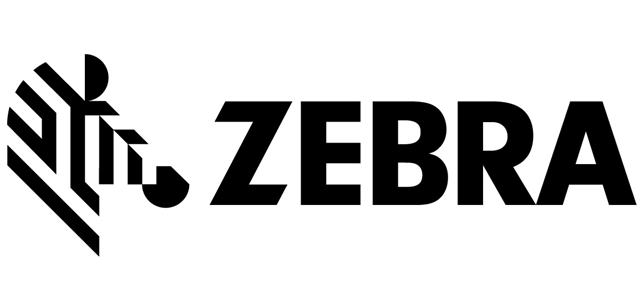Zebra Technologies Takes British University's AI Spin-out Global
August 8th, 2024 – Zebra Technologies Corporation (NASDAQ: ZBRA),a leading digital solution provider enabling businesses to intelligently connect data, assets, and people, is taking AI computer vision global with a portfolio as well as research and development that is infusing 'AI eyes' into technology that businesses and their workers are using today.
"We're bringing computer vision to businesses and their customers and workers with our global team of AI researchers developing new ways to make computer vision, as well as generative AI, voice AI and machine learning useful for the retail, CPG, healthcare, logistics and other industries," said Stuart Hubbard, Senior Director of AI and Advanced Development, Zebra Technologies.
Hubbard joined Zebra five years ago as part of the acquisition of Cortexica, an Imperial College London spin-out founded by Anil Bharath, Professor of Biologically Inspired Computation and Inference, Imperial College London.
Bharath has been working on AI computer vision since the 1990s, but things really took off with the rise of the graphical processing unit (GPU), plus a grant from the UK Government to advance his research. "I describe my work as 'biologically inspired' as I'm fascinated by what the field of AI can learn from neuroscience; we tend to forget that many of our advancements in AI are driven by studies of biological intelligence. But the mere fact that we rely on artificial neurons for much of our machine learning should be a reminder," said Bharath.
Computer vision is often built on a special type of deep learning known as a convolutional neural network (CNN) which is made up of many layers of interconnected nodes (neurons), bearing similarities to the neural network connections in the visual cortex of the human brain. These layers perform feature learning and classification before delivering an output.
"How those neurons are arranged and connected so we can make sense of the world is for me a benchmark for how we can advance computer vision," said Bharath.
Cortexica's brain-inspired technology was swiftly taken up by high street supermarkets, national retailers in the UK and U.S., e-commerce platforms, and world-famous marathon races and tennis competitions. Its successes drew the attention of Zebra, who saw the potential that Cortexica's computer vision technology could have for its own customer base, which led to an acquisition in 2019.
In addition to the company's computer vision prowess, Zebra also gained Hubbard, who now leads Zebra's wider CTO AI and advanced development teams, and Andrea Mirabile, Director of AI Research at Zebra, who was one of Bharath's postgraduate students at Imperial researching bioengineering and neurotechnology and now leads Zebra's AI research team.
Hubbard cites the example of how time-consuming, haphazard scrolling and tapping through fresh fruit, vegetable and pastry lists at the self-checkout is fast becoming a thing of the past. Modern self-checkout scanners equipped with Zebra's computer vision can see items and bring them on screen quickly for the shopper. They can also pair products and scanned barcodes to make sure they match – a useful way to reduce accidental mis-scans and deliberate fraud which costs retailers substantial losses.
Workers who need to inspect stock on shelves in shops and warehouses can hold up their handheld mobile device and let the computer vision 'eyes' rapidly scan shelves and items, making sure they're properly stocked, in the right place, and match barcodes and prices on shelves.
Hubbard and Mirabile, based out of Zebra's research hub in London, have also led the company's efforts in the fields of voice AI on wearable mobile computers and generative AI on-device, all geared toward making work more efficient, connected, and convenient for front-line employees in retail, warehousing, manufacturing, and other industries.
Zebra also maintains a number of research collaborations with universities across North America and Europe and a thriving AI learning network for researchers and academics to present and discuss their latest work with Zebra staff and research fellows.
"We're creating new ways of working by powering secure tech innovations such as AI, where planning and execution systems merge and bring a range of AI applications – voice, vision, speech, text – together to help businesses and front-line workers sense, analyse, and act with AI tools," said Mirabile. "After all, neural networks in the brain can't function alone, they need our senses to become useful, and we're making that real for AI too."
Contact:
Archetype
londonzebra@archetype.co
ABOUT ZEBRA TECHNOLOGIES
Zebra (NASDAQ: ZBRA) helps organizations monitor, anticipate, and accelerate workflows by empowering their frontline and ensuring that everyone and everything is visible, connected and fully optimized. Our award-winning portfolio spans software to innovations in robotics, machine vision, automation and digital decisioning, all backed by a +50-year legacy in scanning, track-and-trace and mobile computing solutions. With an ecosystem of 10,000 partners across more than 100 countries, Zebra's customers include over 80% of the Fortune 500. Newsweek recently recognized Zebra as one of America's Most Loved Workplaces and Greatest Workplaces for Diversity, and we are on Fast Company's list of the Best Workplaces for Innovators. Learn more at www.zebra.com or sign up for news alerts. Follow Zebra's Your Edge blog, LinkedIn, X and Facebook, and check out our Story Hub: Zebra Perspectives.
ZEBRA and the stylised Zebra head are trademarks of Zebra Technologies Corporation, registered in many jurisdictions worldwide. All other trademarks are the property of their respective owners. ©2024 Zebra Technologies Corporation and/or its affiliates. All rights reserved.

